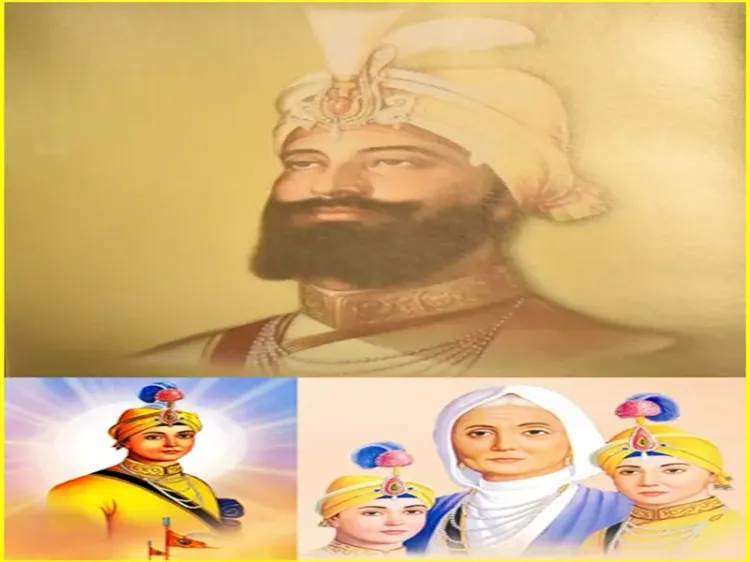Commemorating Veer Bal Diwas: Honoring Ultimate Sacrifice

New Delhi, Dec 25 (NationPress) On January 9, 2022, Prime Minister Narendra Modi proclaimed that December 26 would be celebrated as Veer Bal Diwas to honor the martyrdom of the sons of Sri Guru Gobind Singh Ji, Sahibzadas Baba Zorawar Singh Ji and Baba Fateh Singh Ji, who were martyred in 1704.
The martyrdom of the Sahibzadas
The four sons of Guru Gobind Singh—Sahibzada Ajit Singh, Sahibzada Jujhar Singh, Sahibzada Zorawar Singh, and Sahibzada Fateh Singh—are revered icons in Sikhism.
During the conflict between the Mughals and Guru Gobind Singh, the Guru's family was divided following a fierce battle close to the Sarsa River. After their capture, the Mughal emperor Aurangzeb offered the young Sahibzadas safety in exchange for converting to Islam.
Choosing to remain steadfast in their beliefs, the two younger sons, Sahibzada Zorawar Singh and Sahibzada Fateh Singh, faced execution. They were bricked alive in a fort in Sirhind (Punjab), becoming enduring symbols of unyielding faith and bravery.
Sahibzada Ajit Singh and Sahibzada Jujhar Singh were slain in the Battle of Chamkaur in 1704, valiantly defending against the Mughal forces.
Veer Bal Diwas: Remembering the sacrifice
Veer Bal Diwas serves not only as a day to memorialize the martyrdom of Sahibzada Zorawar Singh and Sahibzada Fateh Singh, but also as a tribute to the sacrifice of all four sons of Guru Gobind Singh and the valor they exhibited.
Their martyrdom exemplifies the Sikh principles of faith, sacrifice, and resilience amidst challenges. This day commemorates their legacy and the values they upheld, reinforcing the tenets of the Khalsa and the teachings of Guru Gobind Singh.
The legacy of Guru Gobind Singh
Guru Gobind Singh (born on December 22, 1666, in Patna, Bihar) is a pivotal figure in Sikhism. Following the martyrdom of his father, Guru Tegh Bahadur, he ascended as the Sikh Guru at the tender age of 9.
Not only a spiritual leader, Guru Gobind Singh was also a warrior, poet, and reformer, significantly influencing Sikh identity and spirituality.
Key contributions
Religious reforms: Guru Gobind Singh introduced the Five Ks—five articles of faith for Khalsa Sikhs:
Kesh (uncut hair)
Kanga (wooden comb)
Kara (iron or steel bracelet)
Kirpan (dagger)
Kachera (short breeches)
Khalsa: Guru Gobind Singh established the Khalsa panth, a community of committed Sikh warriors governed by strict ethical and religious standards, including abstinence from tobacco, alcohol, and halal meat.
Guru Granth Sahib: He proclaimed the Guru Granth Sahib, the sacred text of Sikhism, as the eternal Guru of the Sikhs, concluding the lineage of human Gurus.
Martial contributions: Guru Gobind Singh commanded Sikh forces in various battles against the Mughals, particularly the Battle of Muktsar (1705) and the Battle of Anandpur (1704), during which he lost his mother and two younger sons.








